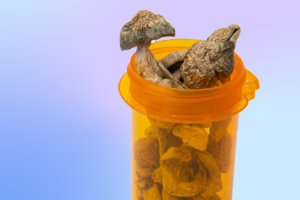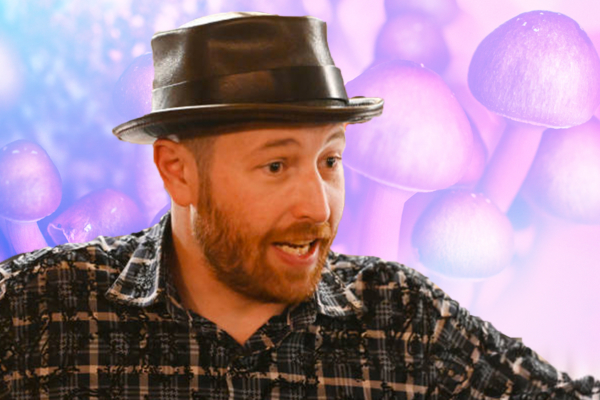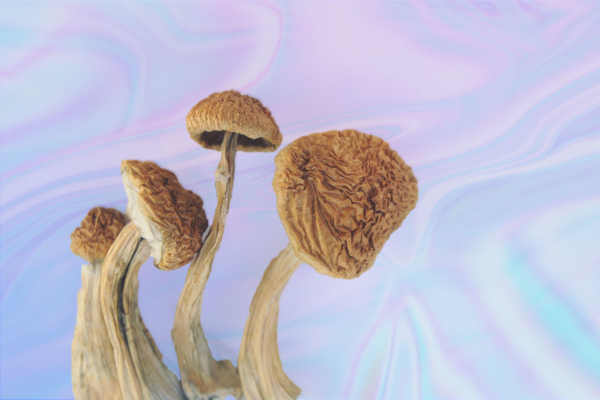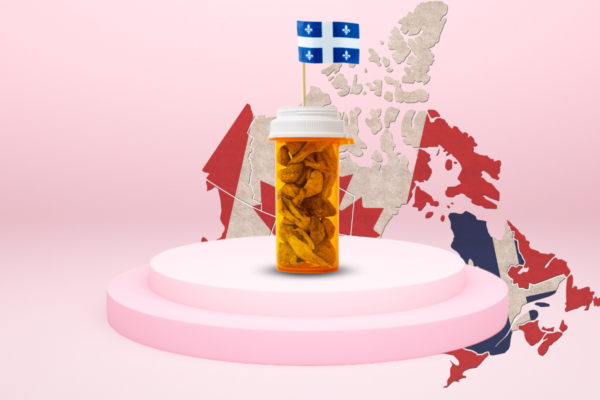
On Tuesday, I wrote about the DEA moving to criminalize two psychedelics, DOI and DOC, as Schedule I, the most restricted category. This would make them not only illegal to consume or sell, but they would also be considered so dangerous that extreme limits would be put on scientists researching them.
Now, in a victory for psychedelic activists and researchers, it appears that the DEA is backing down and won’t criminalize these two hallucinogens after all… at least for the time being.
In a yet unpublished proposed rule, which will officially be published on August 29th, the DEA announces that they are “withdrawing a proposed rule… to place two phenethylamine hallucinogens [DOI and DOC] in schedule I of the Controlled Substances Act. DEA is withdrawing the proposed rule, [and] terminating all proceedings related thereto.”
While this certainly is a victory, it may be too early to celebrate, as the DEA follows the above statement by saying that they “will be publishing a new proposed rule using an amended procedure.”
We do not yet know how this new proposed rule will differ from the original.
Interestingly, however, this is actually the second time in a month that the DEA has backed down, at least temporarily, from placing additional psychedelics in Schedule I. On July 28th, I wrote about how the DEA had decided to withdraw their plan to schedule 4-OH-DiPT, 5-MeO-AMT, 5-MeO-MiPT, 5-MeO-DET and DiPT, five little-known psychedelic compounds of the tryptamine variety.
As I noted in my latest piece on DOI and DOC, the DEA essentially has zero evidence that either drug is dangerous or addictive, and their entire case relied on the fact that they are chemically similar to illegal drugs such as LSD, DMT and DOM –though they also provided no evidence that these drugs are dangerous or addictive. Furthermore, they used the excuse that the United Nations suggests that DOC —though not DOI— be made illegal, as if the USA always listens to the UN.
DOI and DOC, psychedelics first synthesized by Alexander Shulgin, are said to feel subjectively similar to LSD, though they last longer at 12 to 24 hours, and the experience is apparently more energetic.
The fight against the DEA’s actions is being led by the company Panacea Plant Sciences and a group of researchers out of Emory University. Before this latest development, the two organizations had filed a motion asking for a delay in the case “for the DEA to respond to my motion for them to publish a notice or potentially stay the hearings.”
Speaking with the CEO of Panacea, David Heldreth, I asked him if this latest development was a victory, or only a ceasefire.
Responding by email, Heldreth told me, “It’s at least a temporary win, and it gives the research community and others some breathing room. At this point, it’s difficult to know for sure if this is a victory or a ceasefire in the war over DOI and DOC, because of the mention of a plan to publish a new rule.”
In other words, it’s too early to tell if any substantial wins were made in their attempt to stop the scheduling of DOI and DOC, but at the very least, this pause will give activists and researchers time to regroup and gather evidence refuting the DEA’s claim that there is “substantial evidence of potential for abuse of DOI and DOC.”
When asked how he expects the proposed rule will change when the DEA reintroduces it with an “amended procedure,” and whether he expects a major walk back, such as scheduling the psychedelics in a less severe Schedule, such as II, or III, or just a slight procedural change, David told me:
“The motion which we filed which caused the DEA to ask for a delay, was to note that the agency didn’t follow APA law for notices of federal hearings which required the location and time of the hearings to be published to allow people to join the rulemaking. Their previous notices did not identify the time and location of the hearings, but only requested comment and said parties could ask for a hearing. As such, they must file new notices of hearing and allow other parties to join before a case can continue.
As such, the DEA will likely simply refile everything exactly the same, but include a hearing location and time/date to avoid this complication moving forward.
If this is the case it would indicate, I believe, that this is only a ceasefire and not a victory.”
As for what happens now, David told me that “On the legal front, we wait until the DEA files a new notice. Separately, we continue to research these compounds and further demonstrate their therapeutic uses, and educate the public and government officials on these facts.”
As to how the average person can help Panacea and the Emory researchers stop the DEA, he echoed his comments to me for the previous article, saying, “I hate to repeat myself, but contact your official in the US House of Representatives or Senate, or the White House, and let them know that you stand against the DEA actions, that you want DOI and DOC to remain unscheduled, and for psychedelics to be reclassified as unscheduled nationally.”
To learn more about the case, the DEA’s logic, and the evidence for and against banning DOI and DOC, read The DEA is Attempting to Ban Two New Psychedelic Drugs.





